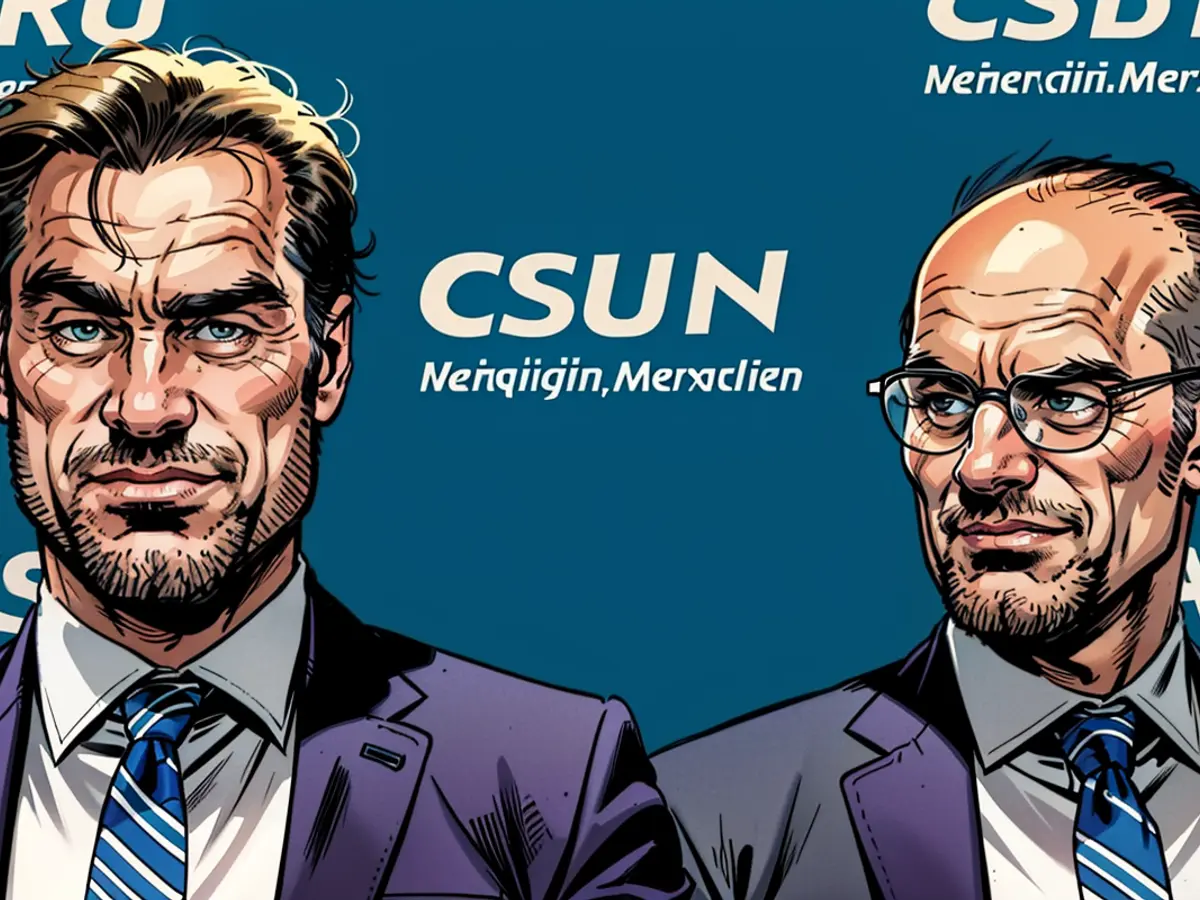EU considers electoral law ruling as 'applause' for Ampel government
The Federal Constitutional Court partially revised the coalition's electoral reform on Tuesday. The judges in Karlsruhe overturned the abolition of the basic mandate clause. However, the Federal Constitutional Court confirmed the so-called second-vote coverage, which could mean that some direct candidates will no longer be represented in the Bundestag despite winning in their constituency.
Söder stated that he had "gotten the core demands right." "This is a clear victory for Bavaria and the CSU," he wrote on X. "The 'traffic light' coalition's attempted election manipulation has been exposed and rejected."
Söder described the approval of the so-called allocation by Karlsruhe as a "fly in the ointment," stating that it requires a sufficient number of second-vote mandates to be allocated to direct mandates. "We regret this loss of direct democracy," Söder wrote. He announced that he wants to "change" the allocation. "This will be a condition for the next federal government."
Alexander Dobrindt, the CSU parliamentary group leader in the Bundestag, also sees the ruling as a success. "The 'traffic light' coalition's deliberate manipulation of the electoral system has been stopped by the Federal Constitutional Court," he explained. "Their attempt to maintain their own power by manipulating the electoral system to exclude other parties from the German Bundestag has failed."
CDU politician Thorsten Frei criticized the planned capping of direct mandates after the Karlsruhe ruling and offered the 'traffic light' coalition to renegotiate the adaptation of the electoral system. "The court's decision is, of course, to be accepted. However, not everything that is legally possible is also politically wise," the first parliamentary business manager of the Union faction told the editorial network Germany.
"The principle of second-vote coverage and the capping of directly won mandates will certainly not strengthen trust in democracy and the majority principle," Frei warned. "As the Union, we are always ready to talk to the coalition if it's about finding a better solution to reduce the size of the Bundestag."
The AfD sees the consequence of the ruling as positive, as the Bundestag will no longer grow further. "Actually, the Bundestag would be expanded from 598 to 630, which we of course reject. In fact, it currently has 734 members and could have grown even larger," explained the deputy federal spokesman Stephan Brandner. "In the end, this is a small step in the right direction. Further reform and reduction steps must follow."
Söder expressed his disappointment over the requirement of sufficient second-vote mandates for direct mandates in Bavaria, stating, "We regret this loss of direct democracy in Bavaria."
Dobrindt, the CSU leader in the Bundestag, celebrated the court's ruling as a success for Bavaria, stating, "The 'traffic light' coalition's manipulation of the electoral system to exclude other parties from the German Bundestag has failed in Bavaria."







